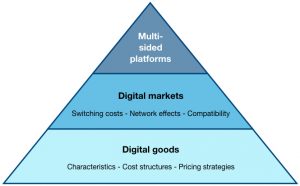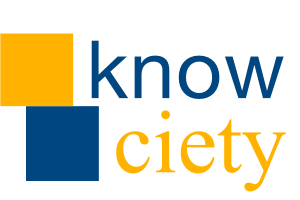For teaching my students I like to work with a framework to structure and summarize the course. So, here is one for the digital economy.

In digital business we usually deal with goods (or services) that are fully or partly digital. In order to understand the digital economy you, therefore, have to know the specifics of digital goods. What characteristics do digital goods have? How do the resulting cost structures look like? And what follows from that for developing pricing strategies for digital goods?
Having laid this groundwork, we can further analyze how digital goods are offered or used in markets. In these systems we have to deal with several characteristics as well. Very often network effects play a prominent role as well as switching costs and compatibility in developing a sound strategy for a digital business.
On top of all that, we see more and more platforms in digital business. For some businesses the market does not only consist of two parties (seller and buyer), but of three or more parties, i.e. they are multi-sided platforms. Multi-sided platforms not only combine all topics discussed with digital goods and digital markets, they present some further challenges (e.g. chicken-and-egg problem) for building and managing them successfully.
